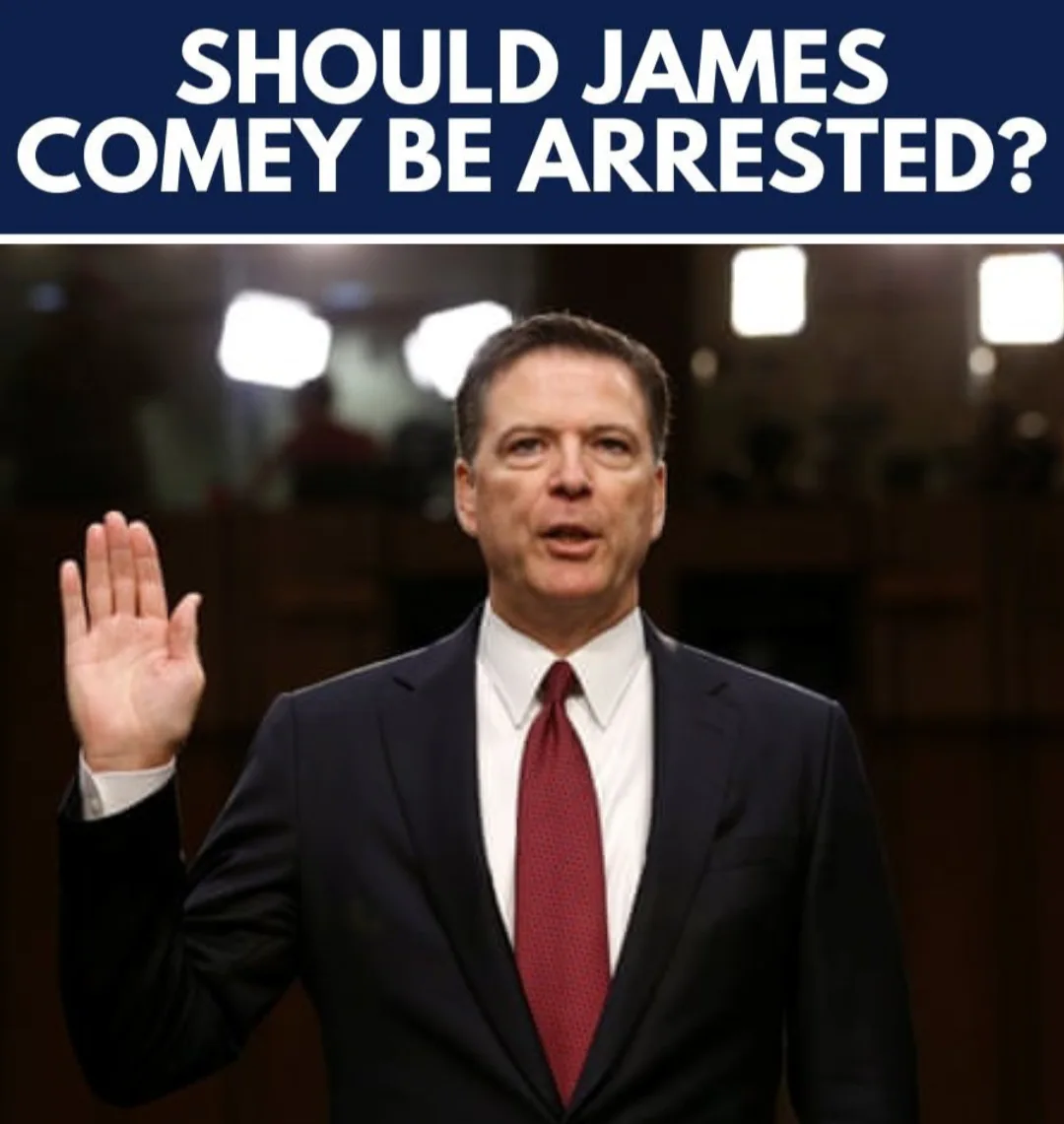Washington, D.C. — The debate over former FBI Director James Comey’s actions during and after his tenure is heating up again, reigniting a political firestorm that has divided the American public and Congress for years. With new scrutiny emerging from both conservative circles and oversight committees, one controversial question is now taking center stage:

Should James Comey be arrested?
While this may sound like a provocative headline, it’s a serious conversation for many on Capitol Hill and among citizens who believe Comey overstepped his authority—particularly in his handling of the Hillary Clinton email investigation, the origins of the Trump-Russia probe, and allegations of politically motivated conduct during a pivotal time in U.S. history.
The Origins of the Comey Controversy
James Comey, a Republican appointed as FBI Director by President Barack Obama in 2013, found himself at the heart of multiple political storms. Most notably:
-
In July 2016, Comey publicly announced that the FBI would not recommend criminal charges against Hillary Clinton over her use of a private email server while she was Secretary of State, even while criticizing her actions as “extremely careless.”
-
Just 11 days before the 2016 election, Comey informed Congress that the FBI was reopening the Clinton investigation due to newly discovered emails—an announcement many believe influenced the election outcome.
-
Later, as President Donald Trump took office, Comey became a central figure in the Russia investigation into alleged collusion between Trump’s campaign and Moscow.
Trump ultimately fired Comey in May 2017, citing his handling of the Clinton investigation. Comey’s dismissal triggered the appointment of Special Counsel Robert Mueller and set off a chain of events that would dominate the political landscape for years.
Allegations of Misconduct
Critics argue that Comey used his position as FBI Director to pursue a politically biased agenda. Among the accusations:
-
Improper surveillance of Trump campaign adviser Carter Page under the Foreign Intelligence Surveillance Act (FISA), based on documents later found to include significant errors and omissions.
-
The use of the Steele dossier, a collection of unverified claims about Trump, as a foundation for launching and continuing the investigation into Russian interference.
-
Leaking memos of private conversations with President Trump to the press, which Comey admitted to orchestrating in order to trigger the appointment of a special counsel.
The Justice Department’s Inspector General report in 2019 confirmed that Comey violated FBI policies in how he handled and leaked his personal memos, though it stopped short of recommending prosecution. Still, many believe this was just the tip of the iceberg.
Why the Question of Arrest Is Back
Calls for Comey’s arrest have resurfaced amid broader Republican investigations into the weaponization of federal agencies. GOP leaders in Congress, especially members of the House Judiciary and Oversight Committees, have pledged to hold former intelligence officials accountable.
Rep. Jim Jordan (R-OH), chair of the House Judiciary Committee, recently stated: “We are looking into how the FBI and DOJ under Comey may have used their power to pursue political ends. There are serious questions of legality and ethics that must be answered.”
Conservative commentators and media personalities are also amplifying the call for accountability. “If we are a nation of laws, no one should be above the law—including James Comey,” said political commentator Mark Levin on his show.
Comey’s Response
James Comey has consistently defended his actions and denied wrongdoing. In multiple interviews and public statements, he has said that his decisions were guided by the law, not politics.
“I don’t care what your politics are,” Comey said in a 2023 interview. “My obligation was to the truth and to the Constitution. I’ve got nothing to hide.”
Comey has also warned of the dangers of political retribution against public servants, arguing that it undermines the independence of the Justice Department and the integrity of federal investigations.
A Nation Divided
Public opinion on Comey remains sharply divided. To some, he is a whistleblower who stood up to President Trump and defended the rule of law. To others, he is a rogue bureaucrat who politicized the FBI and compromised its credibility.
Polls show a mixed perception of Comey:
-
Among Democrats, many view Comey as a complicated figure who may have cost Clinton the election but later tried to protect democracy.
-
Among Republicans, Comey is often seen as the face of the “deep state” and a symbol of government overreach.
What’s Next?
As House investigations continue, it remains unclear whether there is enough legal basis to pursue charges against Comey. While the Justice Department previously declined to prosecute him for his memo leaks, new evidence or political pressure could reopen old cases.
What is certain is that the debate around James Comey is far from over. In a time of political polarization and distrust in institutions, the question “Should James Comey be arrested?” will continue to echo—both as a legal inquiry and a symbol of the nation’s ongoing crisis of confidence in its leaders.






